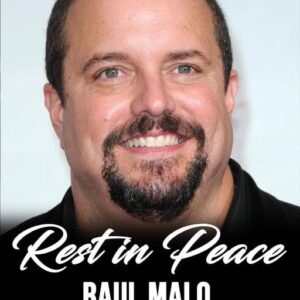Obama Calls for Stronger Oversight of Online Speech: A Warning or a Way Forward?
In a recent public discussion at The Connecticut Forum on June 17, 2025, former President Barack Obama reignited the national debate about free speech and misinformation in the digital age. Speaking alongside historian and author Heather Cox Richardson, Obama expressed concern about the state of public discourse, the spread of false information online, and the potential role of government in moderating digital platforms.
His comments sparked immediate backlash among critics who saw his remarks as a push for increased government control over online expression. However, others saw a more nuanced message—one urging caution in a world where truth is increasingly difficult to discern.
Obama began by illustrating the difference between opinion and fact. “We can have opinions about how something looks,” he said, pointing to an imaginary table. “You might think it’s ugly, I might like it. But if I call it a lawnmower and insist it’s a lawnmower, and you think I’m serious, then we’ve entered into a place where reality itself is up for debate.”
He warned that the breakdown of shared facts leads to societal instability. “That’s when trust begins to erode. And when trust erodes, those with power and influence can exploit that confusion,” Obama said.
Citing propaganda tactics used historically by Russia and more recently echoed by certain political strategists, the former president said the real danger lies not in convincing the public of falsehoods, but in overwhelming people with so much conflicting information that they stop trusting anything altogether.
“You don’t need to make people believe lies,” Obama noted. “You just need to bury the truth in a flood of noise. Once people throw up their hands and say, ‘It doesn’t matter anymore,’ that’s when democracy is truly at risk.”
While many interpreted these comments as a veiled critique of former President Donald Trump and others in right-wing politics, Obama was careful to frame the issue more broadly. He stressed that the challenge affects all societies where media ecosystems are driven by outrage, sensationalism, and algorithmic amplification of conflict.
“Part of the problem,” he said, “is that our digital platforms reward the loudest, most extreme voices. Whether they’re hateful, dishonest, or simply divisive, those voices rise to the top—not because they’re right, but because the business model rewards engagement, not truth.”
Obama made it clear that he is not calling for censorship of opinion or diversity of thought. “We want a range of views. That’s what a democracy is for,” he emphasized. “But we don’t want a diversity of facts. There has to be a common understanding of what is real.”
When asked how society can address this growing challenge, Obama suggested a combination of education, media reform, and regulation. “We have to teach the next generation how to think critically, how to distinguish between opinion and fact, and how to question what they see online.”
He acknowledged that tackling the issue will not be easy and may require careful regulation of digital platforms. “There will need to be some form of government oversight—not to silence voices, but to make sure business models don’t incentivize harm.”
Obama emphasized that any regulation must be consistent with the First Amendment and preserve open debate. However, he insisted there is a difference between protecting free speech and allowing platforms to amplify content that is clearly false or incites violence.
He pointed to the growing need for platforms and society at large to draw lines between legitimate opinion and deliberate misinformation. “This isn’t just about government,” he said. “It’s about journalism, technology, education, and public will. It’s about how we build a digital world that helps us live together, not tear each other apart.”
Public Response and Ongoing Debate
Obama’s comments quickly drew attention from across the political spectrum. Supporters praised his willingness to speak candidly about the risks of misinformation and the need for systemic change. Critics, however, saw his ideas as dangerous—suggesting they open the door for government overreach and political manipulation.
Still, the former president’s core message remains clear: in a digital world flooded with falsehoods and opinion masquerading as fact, finding common ground on what is real may be one of the most important challenges democracies face today.
Whether the path forward includes regulation, education, or innovation in media, Obama’s comments have rekindled a debate that is far from over. As society navigates the balance between freedom and responsibility online, the question remains: who decides what’s true?





